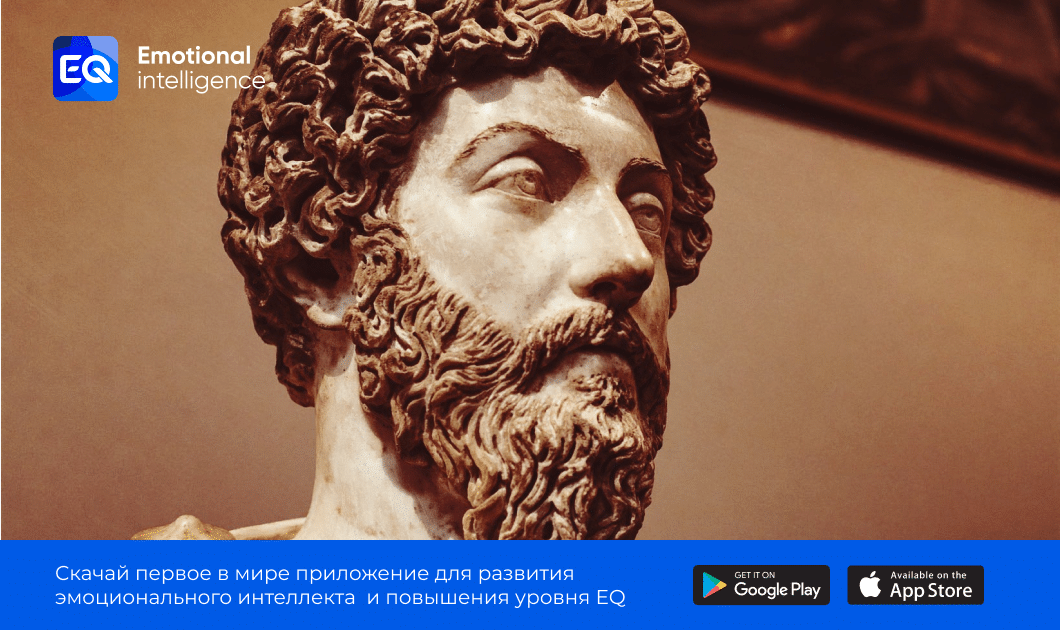Marcus Aurelius Antoninus (lat. Marcus Aurelius Antoninus, 121-180 years) – Roman emperor, philosopher, representative of Stoicism, the follower of Epictetus. He was the last of the five best emperors of the Roman Empire. The Antonine dynasty was famous for its rulers who developed the state and contributed to its prosperity. And even among the excellent rulers of the dynasty – Nerva, Trajan, Adrian, Antoninus Pius – Marcus Aurelius was distinguished by his philosophical approach.
From an early age, the boy studied with worthy teachers – Herodotus Atticus and Cornelius Fronton, who taught Greek and Latin. At the age of 12, Mark begins to take an interest in the philosophy of Stoicism. He dresses like a philosopher, wears a Greek cloak, learns a lot, and is content with little. Marcus Aurelius, being very young, already acquires a seriousness of character, his mind is focused and calm, and emotions give in to inner control, whether it be joy or sorrow. He grows up as a decent and humble boy, showing extraordinary wisdom despite his young years. Already at the age of 17, they began to introduce him to state affairs.
A.D. 161 Marcus Aurelius, along with Caesar Lucius Verus, takes responsibility for caring for the Roman Empire. Soon Marcus Aurelius is left to rule alone. Emotionally perceptive and wise, he leads a successful political career, developing an empire and caring for his subjects.
Plague, flooding of the Tiber River, famine, and even military action. To put it mildly, not the easiest conditions for running an empire. However, Marcus Aurelius, thanks to his philosophical approach and an extremely large set of spiritual qualities, copes with these problems.
Here is one example of how this philosopher ruler did business:
When it became necessary to conduct a military campaign, it became clear that the tax in the provinces would rise, and the already suffering population could hardly afford it. Marcus Aurelius decides to sell his things and replenish the treasury with this money. At the forum of the divine Trajan, an auction was organized, where they sold things from the palace of Marcus Aurelius: clothes, jewelry, dishes, as well as works of art – sculptures and paintings by famous masters. All this property helped pay for military action and protect the empire from barbarian invasions.
There are many more stories told about his emotional practical understanding. For example, when Marcus Aurelius fell seriously ill, the commander of the Roman Empire Avidius Cassius proclaimed himself emperor. Perhaps someone spread rumors about the death of Marcus Aurelius. Some parts of the empire had already supported the “newly proclaimed” ruler and a civil war was already brewing. The news was brought to Marcus Aurelius. He reacted as usual – very calmly. Three months later, when his associates beheaded Avidius Cassius, Marcus Aurelius accepted this news with restraint and equanimity, although a little later he even grieved over the murdered. They say that if Avidius Cassius had to appear before Marcus Aurelius alive, he would certainly have pardoned him. He abandoned the massive repression of his associates and Cassius himself. They wrote about him: “Honest without inflexibility, modest without weakness, serious without gloom.”
To loved ones, Marcus Aurelius showed respect and tolerance. He knew how to listen to the opinions of others and did not put himself above anyone else. His wife Faustina appears before us as “the mother of the camps”. She always accompanied her husband on military campaigns. In addition, although people reproached her for debauchery, Mark respected and loved his wife, thanked her for her favor and frankness.
Thanks to his philosophical approach and high level of emotional intelligence, Marcus Aurelius achieved a lot for the state.
The pestilence epidemic brought thousands of deaths. Marcus Aurelius orders to bury the poor at the expense of the state.
He could not completely impose a ban on gladiatorial fighting, but he was able to defeat the desire for the cruelty of the Romans. To do this, he replaced sharp swords with blunt ones, preventing death. The tightrope walkers performing in the circus now had a mattress safety net in case of a fall. Marcus Aurelius understood that he could not change the world by force. Only with such steps.
He founded the academic, peripatetic, stoic, epicurean departments in Athens. Professors were paid by their state treasury.
He was peaceful but always accompanied his army. Sacrificed sleep in the name of creating philosophical masterpieces. This is how about 12 books were written, known under the name “To myself” or “Reflections”.
With the death of Marcus Aurelius, the “golden age” of the Roman Empire also ends. Being an example of stoicism, he strongly developed emotional stability, did not encourage passivity – he did everything that could be changed, accepting everything that could not be changed. He behaved courageously and tactfully, despite all the blows of fate that fell on him along the path of life and the path of the Great State.


Recent Comments